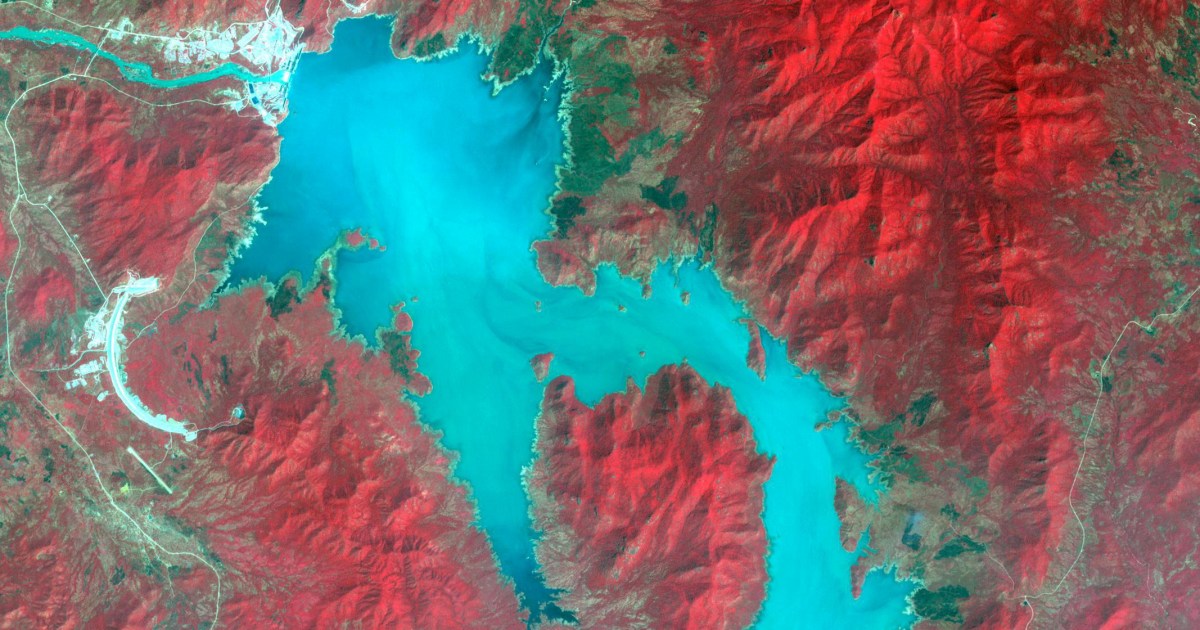The European Union called on the parties involved in the Grand Ethiopian Renaissance Dam crisis to achieve progress in the negotiations, which are expected to resume on Sunday under the auspices of Africa, after a stalemate that lasted for a few weeks in order to settle disputes that have been for many years difficult to resolve.
In a statement issued yesterday evening, the European Union said that the resumption of talks on the Grand Ethiopian Renaissance Dam between Ethiopia, Egypt and Sudan under the auspices of South Africa provides an important opportunity to progress towards an agreement on filling the dam and related operations.
The union added that the resumption of negotiations would ensure safe livelihoods for millions of people in the Nile Basin.
The European Union also affirmed that through its role as an observer in the talks, it encourages all parties to demonstrate the political will to participate in this round in a constructive and open spirit.
The European statement comes after announcing the expected participation of Egypt and Sudan in the ministerial meeting to be held today via video technology, headed by South Africa, which holds the rotating presidency of the African Union.
The Ethiopian Foreign Ministry spokesman Dina Mufti said that South Africa called for the meeting, after negotiations were suspended for about two months due to Khartoum's demand to change the negotiation methodology.
Negotiations have stalled since last November, after several rounds failed to bring positions between the three countries concerned, especially between Ethiopia and Egypt, regarding the rules for mobilizing and operating the dam, which is being built on the Blue Nile near the Ethiopian-Sudanese borders, at a cost of more than $ 4 billion.
Activate the negotiations
The ministerial meeting is expected to be attended by the Egyptian side, Foreign Minister Sameh Shoukry and Irrigation Mohamed Abdel Ati, and on the Sudanese side, Foreign Minister Omar Qamar al-Din, and Irrigation and Water Resources Minister Yasser Abbas.
The Sudanese News Agency reported yesterday that the meeting will be chaired by the Minister of International Cooperation of the Republic of South Africa, Pana Dora, while the private Sudanese newspaper "Al-Change" quoted well-informed diplomatic sources that the meeting will be six-way.
The Sudanese agency quoted an unnamed official source as saying that the meeting will discuss Khartoum's proposal to activate the negotiations by giving a greater role to the African Union through its experts to reach a binding legal agreement on the dam.
The source said that the ministers will look into the draft understanding prepared by the African Union experts to reach a satisfactory agreement for the three parties.
According to the sources, Khartoum accepted the invitation and agreed to engage in negotiations after its withdrawal from the round that was held on November 21, and its stipulation that a greater role be given to the African Union experts.
The meeting comes days after the Egyptian Foreign Ministry announced last Wednesday that the Ethiopian Chargé d'Affairs was summoned in Cairo to protest against the statements of the Ethiopian Foreign Ministry spokesman that it considered an interference in the Egyptian internal affairs, and it also comes after Egypt reiterated the need to reach a legally binding agreement for all parties.
On November 4, the irrigation ministers of the three countries agreed to end the round of negotiations that started at the beginning of the month and return the file to the African Union.
Negotiations between the three countries stalled over a period of 9 years, amid mutual accusations between Cairo and Addis Ababa of intransigence and imposing unrealistic solutions.
Addis Ababa insists on filling the dam even if it does not reach an agreement with Cairo and Khartoum, while the latter two insist on the need to reach a tripartite agreement regarding the dam on the Blue Nile, one of the tributaries of the Nile River.
Cairo is concerned about the potential negative impact of the dam on the flow of its annual share of the Nile River water amounting to 55.5 billion cubic meters, while Sudan gets 18.5 billion, while Addis Ababa says it does not aim to harm anyone, and that the purpose of building the dam is primarily to generate electricity.

